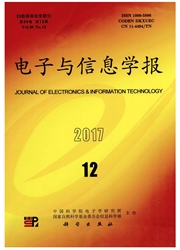

 中文摘要:
中文摘要:
针对全变分算法在压缩感知磁共振成像(CS-MRI)重构过程中存在“阶梯效应”的问题,该文研究3种基于全变分扩展方法的CS-MRI成像算法,即高阶全变分、总广义变分和组合稀疏全变分,并将其与平移不变离散小波稀疏基相结合,建立稀疏模型,采用快速复合分裂算法求解CS-MRI重构的凸优化问题。同时,讨论了全变分及其扩展方法对两种不同磁共振图像数据和径向欠采样模式重构CS-MRI的精度。实验结果表明,基于全变分扩展的重构算法能有效解决全变分重建中存在阶梯效应的缺点;另外,相比高阶全变分和总广义变分重构算法,组合稀疏全变分方法具有更好的重建效果,获得更高重构信噪比。
 英文摘要:
英文摘要:
The Total Variation (TV) method is often used to reconstruct the Compressed Sensing Magnetic Resonance Imaging (CS-MRI), however, it can generate the “stair effect” in the reconstructed MR image. In this paper, there types of TV extension based methods, i.e. High Degree Total Variation (HDTV), Total Generalize Variation (TGV) and Group-Sparsity Total Variation (GSTV), are proposed to implement the sparse reconstruction of MR image. In addition, the shift-invariant discrete wavelet transform are integrated into these TV extension based methods as the sparsifying transform. The Fast Composite Splitting Algorithm (FCSA) is adopted to solve the convex optimization problem of CS-MRI reconstruction. And the Two different types of MR images with radial sampling trajectory are used to validate the reconstruction performance of CS-MRI by using the TV extension methods. The experiment results show that the TV extension based models can overcome the shortcomings of TV based model. Moreover, compared with HDTV and TGV methods, the GSTV method can obviously improve the reconstruction quality with higher Signal-to-Noise Ratio (SNR).
 同期刊论文项目
同期刊论文项目
 同项目期刊论文
同项目期刊论文
 期刊信息
期刊信息
